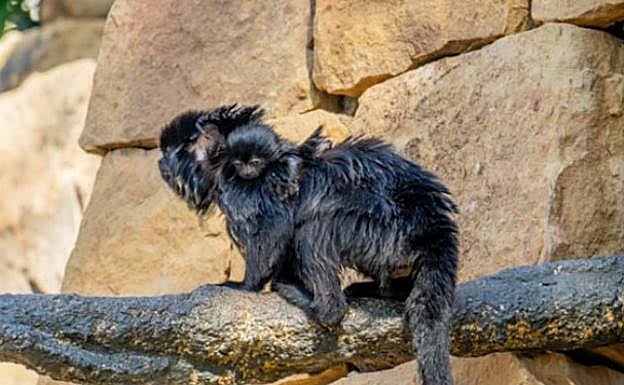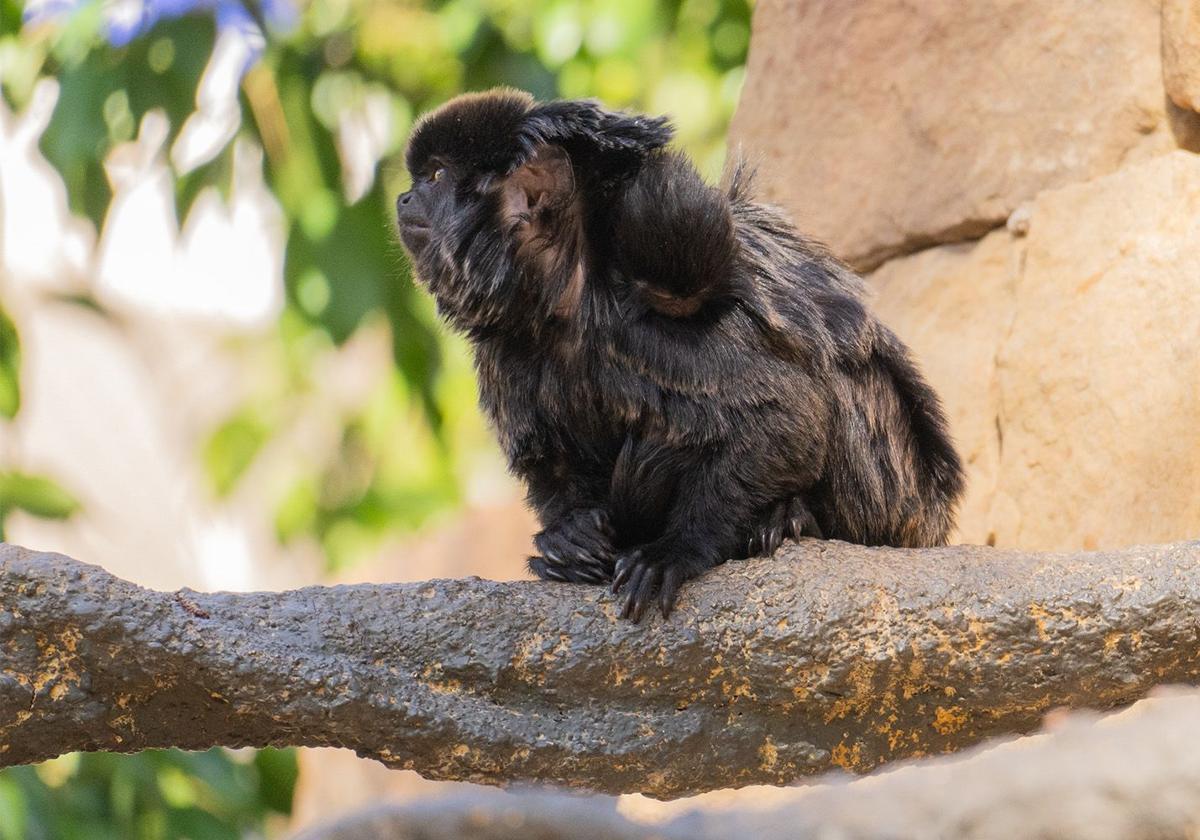Rare baby monkey born at Bioparc Fuengirola animal and conservation park
Recent studies suggest that only a few thousand of the endangered Goeldi marmosets remain in the wild
SUR
Fuengirola
Tuesday, 17 December 2024, 15:32
An infant of the endangered Goeldi's marmoset species has been born at Bioparc Fuengirola. "This is the result of the efforts of the park's team in its 'ex situ' reproduction programmes, essential for the protection of endangered species," the animal and conservation park said in a statement.
The pair of Goeldi marmosets, which arrived a few months ago at Bioparc Fuengirola, is part of the group of small primates that live in the park's new habitat, the recreation of central and South America.
The relationship between the baby and its parents has been positive so far. The mother carries the infant with her for the first two weeks and then the father carries it and returns it to the mother to suckle, alternating the care between the two, Bioparc Fuengirola pointed out.
After a gestation period of about five months, the baby was born in perfect condition and is receiving all the necessary care. The park's officers are closely monitoring her development, they added.

Zoom

This birth is not only an achievement for Bioparc Fuengirola, but also a call to action about the importance of preserving species such as the Goeldi's marmoset, which faces serious threats in its natural environment due to habitat loss and other human factors. This species usually gives birth to a single offspring, with double, or rarely triple, births being more common in other marmoset species.
For visitors, the arrival of this infant is a unique opportunity to observe this species up close and connect with its history, underlining the role that modern zoos play in global conservation.
In need of 'urgent protection'
The Goeldi's marmoset (Callimico goeldii) is a primate species found in the western Amazon region, whose survival is increasingly threatened. Its distribution covers areas of Brazil, Colombia, Peru and Bolivia, but its population in the wild is alarmingly small. Recent estimates suggest that only a few thousand remain in the wild, although the exact number is difficult to determine due to its discrete nature and the difficulty of monitoring them.
This small primate species faces multiple threats in its natural habitat. The main one is the destruction of tropical forests due to deforestation, driven by human activities such as agricultural expansion, illegal logging and mining. Its small size and attractiveness make it particularly vulnerable to illegal wildlife trafficking, a problem that severely affects wild populations.
Communication skills of the Goeldi's marmoset
Inhabiting the dense Amazonian forests, the Goeldi's marmoset is a fascinating example of animal communication. This small primate uses a wide range of sounds, body expressions and behaviours to maintain a social interaction that is crucial to its survival and well-being.
Among their most prominent vocalisations are the high-pitched calls and chirps, which allow them to warn of possible dangers, or even express emotions such as excitement or stress. These vocalisations are especially important in their habitat, where the density of the forest makes direct visibility difficult. Up to seven different types of vocalisations are known, including some with which they communicate over long distances.
In addition to sounds, Goeldi's marmosets use body language to communicate. For example, physical contact, such as mutual grooming, reinforces social bonds within the group. This social behaviour is vital, as marmosets live in small family groups where cooperation is essential, particularly in the care of young.
